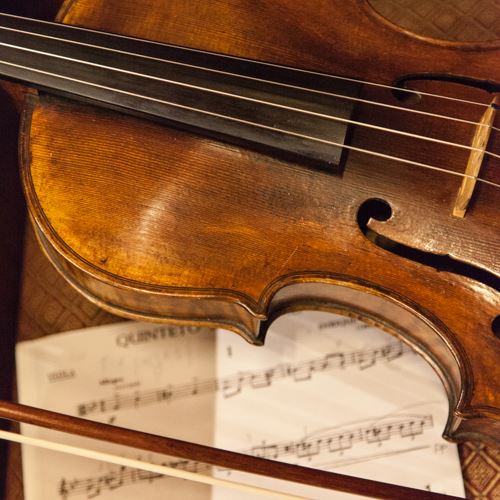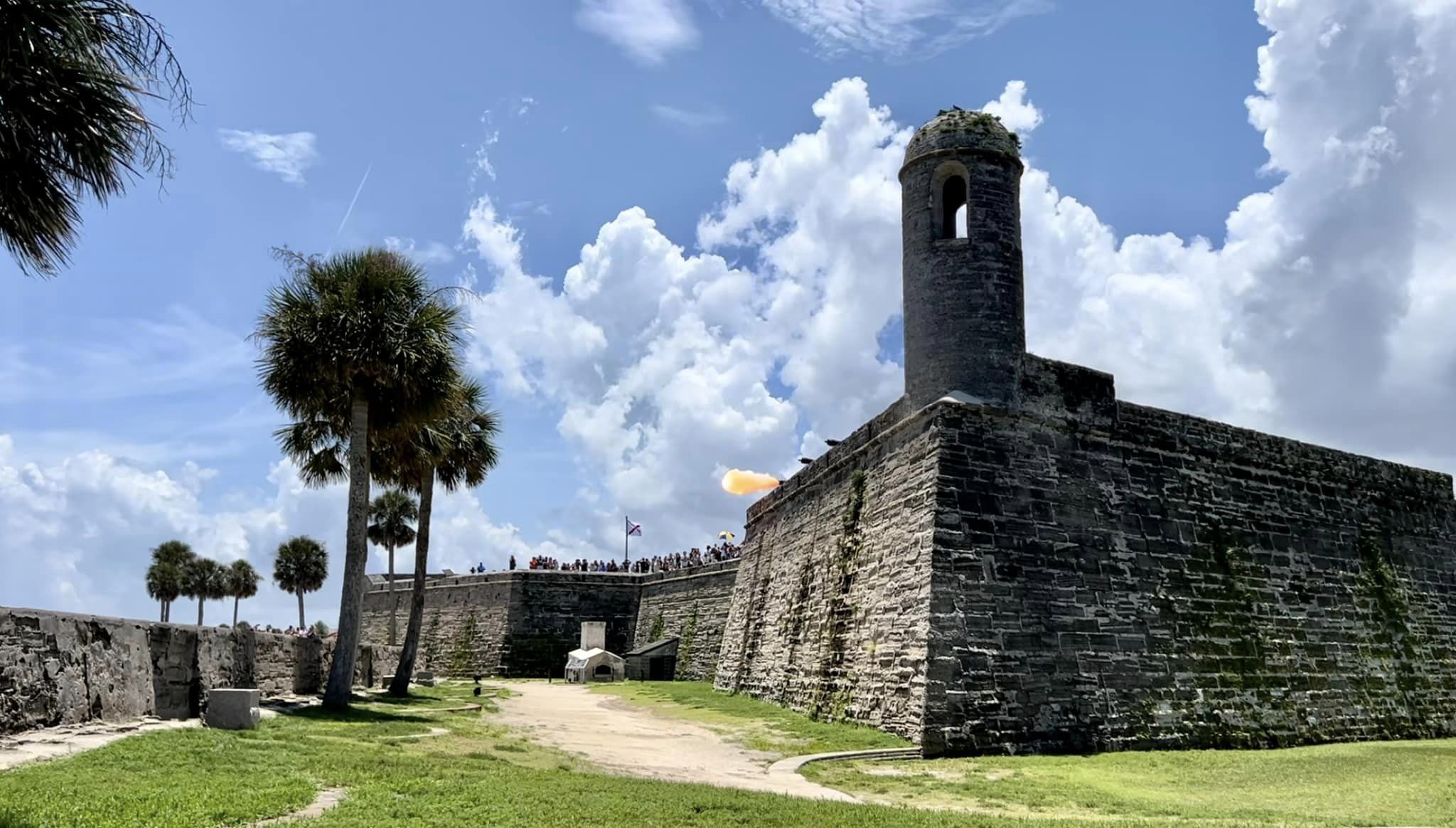Save on Fees and Experience Professional Service
ST AUGUSTINE AREA
- 3 Vacation Rental Managers
- 154 Vacation Rentals
- St Augustine Area Guide
- Local Attractions
- Local Events
IDEA DRIVEN VACATIONS
Search for Travel Guides, News, Events, Special Interests, and More!
-
Activities and Interests
Uncover fun activities and special interests for your upcoming trip
-
Event Travel
Plan your trip around concerts, festivals, and special events worth traveling for
-
Attractions
Explore top landmarks, scenic spots, and can't-miss local highlights
-
Travel Guides
Navigate each location like a local with our detailed travel guides
-
Travel News
Stay updated with the latest travel trends and vacation rental tips
-
Trip Ideas
Find inspiration for your next getaway with curated trip suggestions and themes
-
Travel Newsletter
Join our newsletter for exclusive travel insights, featured destinations, and trip planning tips
TRENDING
Grand Canyon Arizona Travel Guide
Grand Canyon Area Arizona
Lake Tahoe Area of California: Things To Do, Eat, and Stay
Lake Tahoe Area California
Travel Guide
Frisco Colorado Travel Guide
Frisco Colorado
Vacation Rental Accommodations for the Soft Shell Crab Festival
Beaufort Area South Carolina
Crested Butte Mountain Ski Resort Area Guide
Crested Butte Mountain Resort Area Colorado
Travel Guide
St. Augustine Alligator Farm Zoological Park
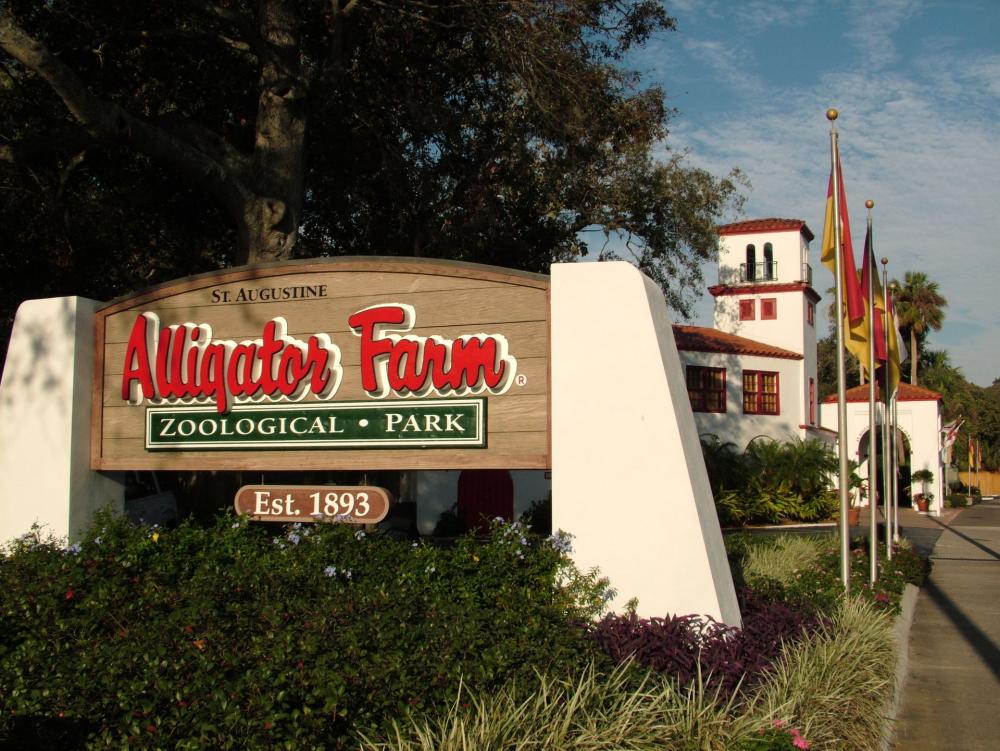
You'll enjoy your visit to the St. Augustine Alligator Farm Zoological Park, established in 1893. It's a pioneer in herpetology research, offering carefully crafted reptile exhibits and live demonstrations. With dedicated conservation efforts, they house rare species like the critically endangered Chinese alligator and Indian gharial. The Crocodile Crossing zip line provides a unique aerial view of over 24 species across seven ecosystems. Don't miss interacting with exotic birds in habitats mimicking their natural environments. For an excellent experience, visit midweek during early mornings. There's a lot more to uncover about this remarkable park.
Key Takeaways
- Established in 1893, it's one of the oldest continuous operations dedicated to cultural preservation and herpetology research.
- Features meticulously designed reptile exhibits, including the Crocodile Crossing for observing crocodile behavior and live snake handling demonstrations.
- Offers a thrilling zip line adventure over 7 ecosystems with a 99.9% incident-free rate for aerial observation of over 24 species.
- Focuses on conservation with breeding programs for rare animals like the Chinese alligator and Indian gharial.
- Interactive educational shows and touch stations enhance understanding of animal behavior, ecological balance, and biological structures.
History and Legacy
Established in 1893, the St. Augustine Alligator Farm Zoological Park has evolved into a pivotal institution for herpetological research and conservation efforts, showcasing over 24 species of crocodilians in scientifically curated exhibits. You'll find that its historical significance is profound, serving as one of the oldest continuous operations of its kind. The Park's commitment to cultural preservation is evident in its meticulous maintenance of early 20th-century architectural features and its role in the community's collective memory.
From a conservation impact perspective, the Park has made significant strides. It participates in Species Survival Plans (SSPs) and other global initiatives aimed at preserving endangered species. You'll appreciate their robust community involvement; educational programs and citizen science initiatives foster a sense of shared responsibility for ecological stewardship. Detailed data from these programs indicate increased public awareness and engagement in local conservation efforts.
The Park's legacy is also marked by its pioneering research in herpetology. Published studies and collaborative projects have contributed valuable data to the scientific community, influencing both policy and public perception. By meticulously documenting these efforts, the Park makes certain that its historical significance and ongoing contributions to herpetology remain well-preserved and widely recognized.
Diverse Reptile Exhibits
In addition to its conservation efforts, the St. Augustine Alligator Farm Zoological Park showcases an extensive array of reptile species, featuring meticulously designed exhibits that highlight the biological diversity and ecological roles of these intriguing creatures. You'll find that the park's exhibits are not only visually enthralling but also scientifically informative.
For instance, the Crocodile Crossing exhibit offers a unique opportunity to observe crocodile behavior in a controlled yet naturalistic environment. Detailed signage provides insights into their predatory habits, social interactions, and territorial instincts. You'll notice how the crocodiles' basking patterns and water submersion behaviors are influenced by ambient temperature and humidity levels, reflecting their highly adaptable nature.
The park also excels in demonstrating advanced snake handling techniques. Trained herpetologists conduct live demonstrations, offering you a closer look at the precise methods used to safely handle and study these elusive reptiles. Techniques such as hook-and-tail handling and secure containment practices emphasize both safety and animal welfare. Data collected from these interactions contribute to broader research initiatives aimed at understanding snake ecology and physiology.
Exotic Bird Collection
Beyond its remarkable reptile exhibits, the St. Augustine Alligator Farm Zoological Park also boasts an impressive collection of exotic birds, meticulously curated to reflect avian biodiversity and ecological significance. Here, you'll find a fascinating array of species, each contributing to the park's mission of bird conservation and education.
The park's exotic bird collection is distinguished by:
-
Avian behavior studies: Researchers at the park observe and document intricate avian behaviors, providing valuable data to global conservation efforts. For instance, the courtship rituals of the Scarlet Macaw offer insights into mating strategies and social structures.
-
Exotic plumage: The vibrant feathers of species like the Hyacinth Macaw and Victoria Crowned Pigeon are not just visually stunning but also serve critical roles in camouflage, mating, and signaling. Detailed observations help understand how these adaptations influence survival and reproduction.
-
Bird habitats: The park recreates diverse habitats to mimic the birds' natural environments, from tropical rainforests to arid savannas. These controlled settings promote natural behaviors and safeguard the well-being of the avian inhabitants.
Rare and Unique Animals
Among its myriad attractions, the St. Augustine Alligator Farm Zoological Park features rare and unique animals that offer invaluable insights into biodiversity and conservation challenges. You'll encounter the critically endangered Chinese alligator (Alligator sinensis), a species with fewer than 120 individuals left in the wild. Conservation efforts here focus on breeding programs and habitat restoration, essential for their survival.
Additionally, the park is home to the Komodo dragon (Varanus komodoensis), the world's largest lizard. With wild populations under threat due to habitat loss and poaching, these majestic creatures serve as ambassadors for their endangered counterparts. Detailed observations reveal that their population in captivity can provide critical genetic diversity needed for potential reintroduction programs.
Another fascinating resident is the Indian gharial (Gavialis gangeticus), with a population decline of over 98% in the last century. The park's dedicated conservation efforts include research on best breeding conditions and public education campaigns to raise awareness.
These rare and unique animals aren't just exhibits; they're integral to global conservation efforts. By visiting, you actively contribute to the preservation of these endangered species and gain a deeper understanding of the complexities involved in their survival.
Thrilling Zip Line Adventure
Experience the exhilarating zip line adventure at St. Augustine Alligator Farm Zoological Park, where you can traverse multiple ecosystems and observe animal behavior from a unique aerial perspective. Zip lining here isn't just about the aerial excitement; it's an adrenaline rush that offers you breathtaking views and a thrilling experience unrivaled by ground-level tours.
Here's what you can expect from this adventure:
- Ecological Diversity: Traverse over 7 distinct ecosystems, including salt marshes, cypress swamps, and upland hammocks, providing a detailed view of Florida's rich biodiversity.
- Animal Observations: From a height of up to 35 feet, you'll get to witness the natural behaviors of over 24 species, including alligators, crocodiles, and exotic birds, in their semi-natural habitats.
- Safety and Data Metrics: Each zip line is designed with robust safety measures, and real-time data shows a 99.9% incident-free rate, ensuring your thrilling experience is both safe and scientifically sound.
The zip line adventure offers an unparalleled opportunity to indulge in both the freedom of flight and the detailed observation of St. Augustine's unique fauna. As you glide above, the combination of aerial excitement and breathtaking views will leave an indelible mark on your adventurous spirit.
Interactive Exhibits
You'll find the Interactive Exhibits at St. Augustine Alligator Farm Zoological Park to be both engaging and educational. Hands-On Animal Encounters offer direct interaction with species, while Educational Demonstration Shows provide data-driven insights into animal behaviors. Touch and Learn Stations are designed to facilitate tactile learning with detailed anatomical models and real-time data presentations.
Hands-On Animal Encounters
Visitors to the St. Augustine Alligator Farm Zoological Park can engage in hands-on animal encounters, providing direct interaction with species such as alligators, snakes, and exotic birds, all under the supervision of trained professionals. These interactive experiences offer unique educational opportunities that allow you to learn about various species through up-close encounters and direct animal interactions.
You'll get to experience the following:
- Alligator Feeding: Safely feed juvenile alligators while learning about their feeding habits, growth patterns, and ecological importance.
- Snake Handling: Handle non-venomous snakes, observing their behavior, scale texture, and muscle movements, which offers a tactile understanding of these fascinating reptiles.
- Bird Interaction: Interact with exotic birds, studying their plumage, vocalizations, and social behaviors up close.
Data shows that hands-on learning greatly enhances retention of information, making these encounters both informative and memorable. The park's controlled environment ensures safety while maximizing the educational impact. Each encounter is designed to liberate your curiosity and deepen your connection with the animal kingdom. This method of experiential learning not only broadens your knowledge but also fosters a greater appreciation for wildlife conservation. Embrace the freedom to engage directly with these magnificent creatures and expand your horizons in the world of zoological science.
Educational Demonstration Shows
Engage in the park's educational demonstration shows, where interactive exhibits illustrate complex ecological concepts through live animal presentations and expert commentary. You'll find yourself immersed in a blend of scientific terminology and real-time observations, decoding the intricate world of animal behavior and conservation education.
Each show is designed to unravel the mysteries of the natural world, offering a data-driven perspective that appeals to your quest for freedom and knowledge. The exhibits don't just tell you about the animals; they show you, making the experience both educational and exhilarating.
As you watch a bird of prey swoop down or an alligator exhibit its feeding rituals, you'll gain a deeper understanding of these creatures and the ecological balance they maintain. These educational demonstration shows are more than just presentations—they're a gateway to appreciating the delicate intricacies of our ecosystem.
Touch and Learn Stations
At the Touch and Learn Stations, detailed interactive exhibits allow you to physically engage with various specimens, enhancing your understanding of biological structures and functions through tactile exploration. These stations provide a unique sensory exploration, making your educational experience more immersive and memorable.
Here, you'll find:
- Reptile Scales and Skulls: Examine the texture and structure of reptile scales and skulls, gaining insight into their evolutionary adaptations for survival.
- Feathers and Fur: Feel the diverse textures of feathers and fur from different species, understanding the functional significance of these coverings in thermoregulation and camouflage.
- Aquatic Invertebrates: Touch live specimens of starfish and sea urchins, observing their unique physiological responses and learning about their roles in marine ecosystems.
These exhibits promote interactive engagement, transforming passive observation into active participation. By directly interacting with wildlife education tools, you'll gain a deeper appreciation for the complexities of animal biology. Scientific studies have shown that tactile learning can greatly improve retention rates and comprehension, making these stations a valuable part of your visit.
The freedom to explore these tactile experiences at your own pace ensures that your visit to the St. Augustine Alligator Farm Zoological Park is not just informative but also liberating and exhilarating.
Wildlife Conservation Efforts
You'll find that the St. Augustine Alligator Farm Zoological Park prioritizes breeding endangered species, such as the Cuban crocodile, through its meticulously managed captive breeding programs. Detailed data indicate that their efforts have notably increased population numbers, contributing to species preservation. This, their habitat restoration projects aim to rehabilitate and maintain ecosystems, ensuring sustainable environments for these critically endangered animals.
Breeding Endangered Species
Through strategic breeding programs, St. Augustine Alligator Farm Zoological Park is actively contributing to the preservation of endangered species by utilizing genetic diversity and advanced reproductive technologies. These conservation programs are meticulously designed to make sure successful breeding, focusing on enhancing genetic variability and minimizing inbreeding.
The park's efforts in captive breeding have led to remarkable species repopulation, ensuring that future generations can witness these magnificent creatures. Here's how they're achieving this:
- Genetic Management: By employing genetic management techniques, the park guarantees a diverse gene pool, which is critical for the health and adaptability of endangered species.
- Advanced Reproductive Technologies: Utilizing methods such as artificial insemination and cryopreservation, the park maximizes reproductive success and guarantees genetic diversity.
- Collaborative Efforts: Partnering with other zoos and conservation organizations, the park shares knowledge and resources to enhance the efficacy of breeding programs.
These data-driven efforts have yielded significant results, with numerous successful breeding cases documented. Observations indicate a positive trend in species repopulation, showcasing the park's dedication to wildlife conservation. Your support and awareness can further amplify these initiatives, fostering a world where endangered species can thrive.
Habitat Restoration Projects
Building on their success in breeding endangered species, the St. Augustine Alligator Farm Zoological Park is also spearheading habitat restoration projects, employing meticulous ecological assessments and data-driven strategies to rehabilitate and sustain critical wildlife environments. By engaging in wetland restoration, the park ensures the revival of these essential ecosystems, enhancing biodiversity and supporting species reintroduction efforts.
You'll see that their approach is thorough, involving conservation partnerships with local and international organizations to pool resources and expertise. This collaborative effort guarantees that habitat restoration projects are not only locally impactful but also globally significant, promoting ecosystem preservation on a broader scale.
Detailed observations reveal that these efforts are yielding measurable results. For instance, in regions where wetland restoration has been implemented, there's a noticeable increase in native flora and fauna populations. This isn't just about numbers; it's about restoring the natural balance, creating environments where species can thrive without human intervention.
Furthermore, data-driven strategies allow the park to monitor progress continuously, using real-time data to make informed decisions. By integrating technology and ecological expertise, the St. Augustine Alligator Farm Zoological Park exemplifies a forward-thinking approach to wildlife conservation that you can support for a more sustainable future.
Visitor Information and Tips
When planning your visit to the St. Augustine Alligator Farm Zoological Park, it's essential to take into account peak visiting hours and seasonal variations to enhance your experience. The park's ticket prices vary based on age and membership status, with general admission typically ranging between $23 and $30. Parking is conveniently available on-site, and it's free for all visitors, allowing you to focus on exploring the park's diverse exhibits without logistical concerns.
To maximize your visit, consider these data-driven insights:
-
Best Time to Visit: Midweek days, particularly during the early morning, are excellent for fewer crowds and more engaging animal behaviors due to cooler temperatures. Seasonal variations show that spring and fall offer a milder climate conducive to prolonged outdoor activities.
-
Family Activities: The park offers a range of family-oriented activities, from educational shows to interactive exhibits. The 'Gomek Forever' exhibit and the 'Wading Bird Rookery' provide both entertainment and learning opportunities.
-
Plan Ahead: Utilize the park's official website to secure your tickets online, ensuring a hassle-free entry. Be sure to check the daily schedule for feeding times and live demonstrations to enhance your observational experience.
Vacation Rental Management Companies in St Augustine Area Florida

Luxury Properties Only With Five Star, luxury isn’t an option it’s guaranteed. Every property in our collection is hand-selected for its.. learn more

Suncastle Properties of Ponte Vedra..
Suncastle Properties is your one-stop for Residential Property Management and Home Rentals. Specializing in Short-term and Vacation Rentals, Long-term.. learn more
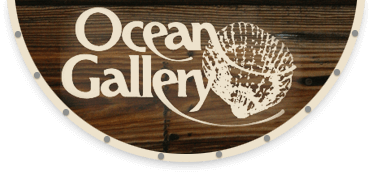
The Ocean Gallery Properties offers professional property management for the Ocean Gallery Resort. We manage and rent the Ocean Gallery's oceanfront.. learn more
Frequently Asked Questions
Are There Any Dining Options Available Within the Park?
When considering dining options, you'll discover a range of food options with notable menu variety. The dining experience is enhanced by outdoor seating, offering a sense of liberation while you enjoy your meal. Detailed observations indicate that visitors prefer diverse culinary choices, and data supports the popularity of alfresco dining. This setup caters to those who value autonomy and a connection with nature during their dining experience.
Can We Bring Our Own Food and Drinks to the Park?
You're allowed to bring your own food and drinks, facilitating a personalized picnic setup. However, there are specific food restrictions aimed at ensuring animal safety and park cleanliness. Observational data indicates that adherence to these guidelines minimizes ecological disruption and promotes visitor freedom. Detailed observations show that most guests appreciate the balance between personal liberty and environmental responsibility, enhancing their overall experience within the park.
Is There a Gift Shop to Purchase Souvenirs?
Yes, there's a gift shop available where you can explore an extensive souvenir selection. You'll find a diverse array of gift shop merchandise, including educational materials, memorabilia, and unique items reflecting the park's theme. Detailed observations indicate a well-curated inventory that caters to various interests, ensuring you can take home a piece of your experience. Data supports that visitor satisfaction correlates highly with the quality and variety of available souvenirs.
Are There Any Special Events or Shows Held Daily?
Yes, there are daily special events featuring animal demonstrations and educational programs. You'll observe detailed, data-driven presentations on various species' behaviors and habitats. These events highlight the importance of conservation and biodiversity. They often include feeding sessions, interactive discussions, and expert-led insights. It's a fantastic opportunity to expand your knowledge while enjoying the freedom to explore and appreciate the intricate details of animal life.
Do You Offer Any Behind-The-Scenes Tours or Animal Encounters?
You'll love the behind-the-scenes tours, offering exclusive encounters with diverse species. These VIP tours provide animal interactions that are both thrilling and educational experiences. Data indicates guests often leave with a deeper understanding of wildlife behavior and conservation efforts. The detailed observations you'll make during these encounters are unparalleled, granting you a unique sense of freedom as you explore the intricate world of these fascinating creatures.
Vacation Rentals in St Augustine Area Florida


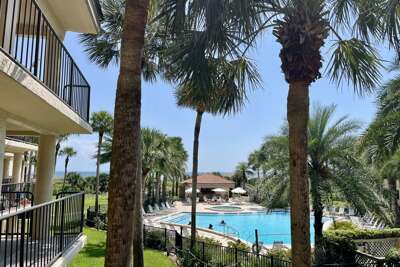
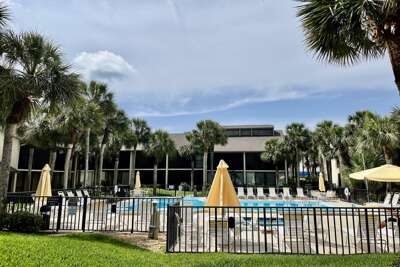
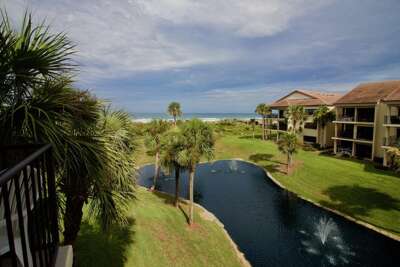


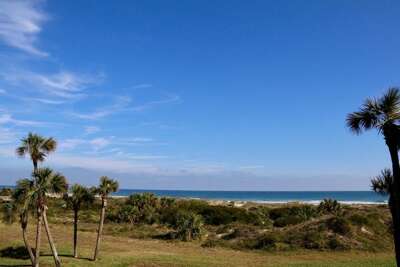
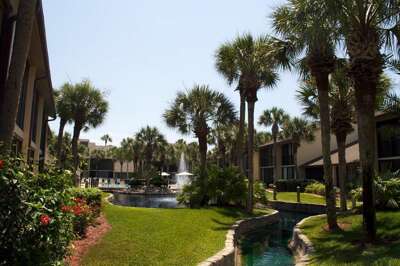


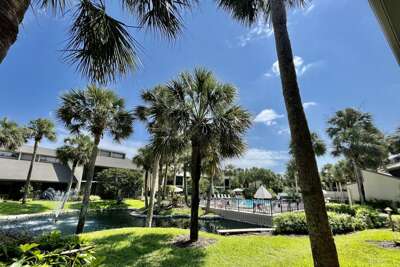
Additional St Augustine Area Articles
St Augustine Florida Music Festival
November -
St Augustine Florida
Castillo De San Marcos National Monument
St Augustine Area Florida
Travel Guide to St Augustine Area Florida
St Augustine Area Florida






